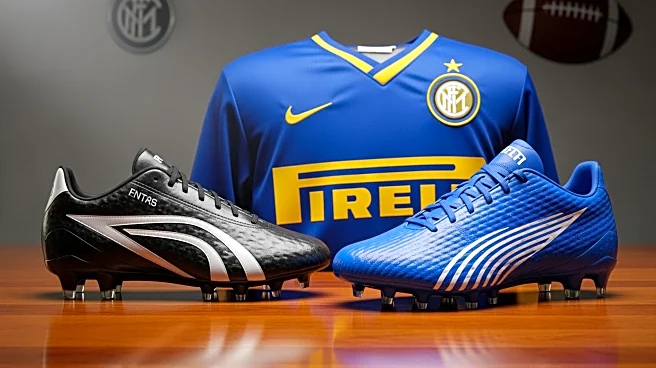What's Happening?
Cristian Chivu has made a remarkable impact since taking over as manager of Inter Milan from Simone Inzaghi. Despite his limited experience in senior management, Chivu has led Inter to joint leadership
positions in both the Champions League and Serie A as of November's international break. Under Chivu's guidance, Inter has demonstrated formidable scoring prowess, netting 37 goals across all competitions, including a league-high 26 in Serie A. Chivu's high-pressing philosophy has injected greater intensity and purpose into Inter's attacking play, making them more dangerous and direct compared to Inzaghi's tenure. This strategic shift has resulted in a more vertical and efficient team, enhancing their performance on the field.
Why It's Important?
Cristian Chivu's successful start as Inter Milan's manager is significant for the club's future and the broader football community. His ability to outperform his predecessor, Simone Inzaghi, highlights his potential to lead Inter to further success in domestic and international competitions. Chivu's approach may influence other teams to adopt similar high-pressing strategies, potentially altering tactical trends in football. Additionally, his success could pave the way for more former players to transition into managerial roles, impacting the career paths of retired athletes. Inter's improved performance under Chivu may also attract more fans and sponsors, boosting the club's financial and competitive standing.
Beyond the Headlines
Chivu's managerial success raises questions about the role of experience versus innovation in football management. His achievements suggest that fresh perspectives and strategic adaptability can be as valuable as experience, potentially encouraging clubs to consider younger, less experienced managers. This shift could lead to a more dynamic and diverse managerial landscape, fostering innovation and competition. Furthermore, Chivu's emphasis on directness and high-intensity play may influence training methodologies and player development, impacting how future generations of footballers are coached.









